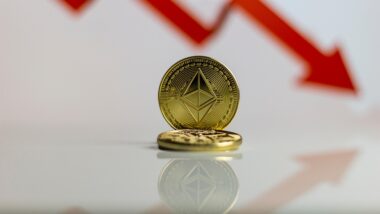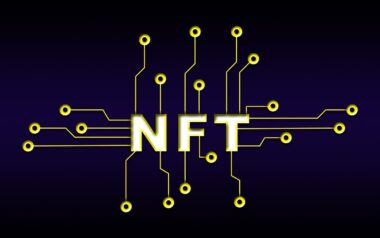The Impact of Ethereum on Digital Marketing Strategies
Ethereum has significantly reshaped the digital landscape, providing new avenues for marketing strategies. This blockchain platform enables decentralized applications (dApps) that enhance user engagement and interaction. Businesses leverage Ethereum’s capabilities to streamline their operations, enabling them to reach consumers more efficiently. By utilizing smart contracts, companies can automate transactions and interactions, ensuring a smoother user experience. Moreover, Ethereum contributes to transparency, as all transactions are recorded on the blockchain. This openness builds trust between consumers and brands, a vital element in today’s market. Digital marketers increasingly adopt Ethereum-based solutions to enhance promotional activities, targeting specific demographics more effectively. Additionally, with Ethereum’s tokenization features, businesses can create unique digital assets, paving the way for innovative marketing campaigns. The rapid evolution of this technology continues to excite marketers seeking to establish a competitive edge. As Ethereum grows, it influences digital marketing practices, prompting brands to explore creative ways to engage customers. Furthermore, the rise of decentralized finance (DeFi) offers new possibilities for businesses to collaborate and innovate. Ethereum is not just a currency; it is a catalyst for change in digital marketing.
The implications of Ethereum extend beyond mere transactions; they influence content marketing approaches. Brands can utilize blockchain technology to ensure authenticity and ownership of digital content. For instance, in the art world, artists can establish provenance by minting NFTs (Non-Fungible Tokens) on Ethereum’s blockchain. This provides a secure way to sell and distribute creative work, while also ensuring that artists get rightful compensation. Digital marketers are increasingly incorporating NFTs into campaigns, showcasing exclusive content, or rewards for loyal customers. Moreover, integrating Ethereum with social media platforms fosters innovative promotional opportunities, enabling influencers to connect with their audience through unique interactive experiences. The participation of users in these campaigns encourages community building, enhancing customer loyalty. Effective storytelling is vital, and Ethereum helps brands narrate their stories authentically by verifying the origins of their products. Businesses can showcase their commitment to ethics, sustainability, and quality, influencing buyer decisions profoundly. Furthermore, Ethereum allows for automation in performance tracking, giving marketers real-time insights into campaign effectiveness. This adaptability makes Ethereum a powerful tool in dynamic marketing environments. Brands are recognizing the importance of this technology in driving their content strategy.
Tokenization and its Benefits
One of the standout features of Ethereum is its ability to tokenize assets, creating innovative opportunities for marketers. Tokenization enables businesses to transform their products or services into digital tokens, streamlining the customer experience. Customers can purchase these tokens, representing ownership or access to various services. This not only simplifies transactions but also opens doors for unique marketing strategies such as token-based loyalty programs. By rewarding customers with tokens for their engagement or purchases, brands can foster loyalty and encourage repeat business. Furthermore, tokenized assets can drive a sense of community among users who share similar interests. This aspect leads to increased customer engagement, as participants feel valued and recognized. The rise of tokenization reinforces the need for businesses to adapt their marketing approaches and embrace digital transformation. Additionally, tokenized content can facilitate innovative collaboration among businesses, creating mutual benefits. Joint ventures can be supported by shared tokens, allowing each brand to tap into each other’s customer base effectively. Ethereum’s ecosystem empowers marketers to explore these new avenues, pushing creative boundaries. As industries begin to recognize the potential of tokenization, adaptation strategies become crucial for long-term success.
Moreover, Ethereum’s impact on digital marketing also involves integrating emerging technologies like artificial intelligence and machine learning. Combining these technologies with Ethereum’s blockchain facilitates advanced analytics and customer profiling. Marketers can leverage blockchain-based data to create targeted campaigns, ensuring messages resonate better with audiences. This results in enhanced conversion rates and improved ROI for marketing initiatives. Furthermore, the decentralized nature of Ethereum allows for data ownership, reducing reliance on third-party data providers. Businesses maintain control over consumer data, ensuring compliance with evolving privacy regulations. By utilizing AI and Ethereum, brands can gain deeper insights into consumer behavior, identifying trends and preferences. This intelligence empowers marketers to craft personalized experiences that cater precisely to individual needs and expectations. The resilience of this technological integration assists brands in staying competitive within crowded markets. Real-time analytics powered by Ethereum can refine campaign strategies on the fly, adapting to market shifts seamlessly. As AI continues to advance, the potential for innovative marketing solutions becomes limitless. Overall, Ethereum acts not only as a currency or platform but as a pivotal force enhancing digital marketing strategies.
Challenges and Considerations
Despite its promise, leveraging Ethereum introduces challenges for marketers to mitigate. First, the volatility of cryptocurrency can impact business strategies, as fluctuating values may deter consumers from purchasing tokenized assets. Marketers must convey the benefits clearly while addressing potential risks associated with market speculation. Effective education on how Ethereum functions becomes essential to alleviate consumer concerns. Furthermore, navigating regulatory environments presents another has complexity. As regulations surrounding cryptocurrencies evolve, businesses must ensure compliance while crafting their marketing strategies. A failure to adapt could result in penalties or loss of consumer trust due to perceived risks. Additionally, the technological barrier can hinder mass adoption; many potential users may find the interface intimidating. Marketers should focus on educating their audience about the ease of using Ethereum, simplifying processes involved in transactions or interactions. Moreover, technical challenges like network congestion can impact user experience, necessitating effective customer support systems. Failed transactions or slow processing times stress consumers, adversely affecting their perception of the brand. Hence, businesses must create robust support infrastructures to navigate these concerns.
Furthermore, developing a compelling value proposition remains paramount for businesses utilizing Ethereum in their marketing strategies. Companies must articulate not just the benefits but also the unique features that set them apart from competitors. Crafting a strong narrative depicting the seamless integration of Ethereum into their services draws customers in and fosters their interest. The ability to connect brand values with customer aspirations can enhance emotional resonance, driving engagement and fostering loyalty. Marketers should continually innovate, testing different approaches to maximize effectiveness. Participating in community-building efforts through Ethereum, such as partnerships or collaborations, can reinforce brand identity and create buzz. Additionally, employing gamification strategies can engage customers, making marketing efforts entertaining. This can lead to increased participation in campaigns and foster greater loyalty among users. The dynamic nature of Ethereum presents a unique landscape for creative experimentation. Marketers must adapt and leverage the ever-changing technological landscape to connect with contemporary audiences effectively. In an era dominated by digital engagement, Ethereum’s evolving framework offers marketers invaluable tools to enhance their strategies.
Future Trends in Marketing with Ethereum
Looking ahead, brands must be prepared for the trends on the horizon shaped significantly by Ethereum. The continued rise of decentralized finance (DeFi) will likely transform promotional tactics across industries, presenting innovative methods to engage customers. Marketing strategies incorporating DeFi principles can attract diverse audiences seeking unprecedented value. Furthermore, the interface of Ethereum with augmented reality (AR) and virtual reality (VR) opens new realms of interactive marketing. Brands can immerse consumers in virtual experiences, showcasing products compellingly and memorably. This type of marketing enhances consumer engagement and enhances brand recollection. Moreover, as social networks explore integrating blockchain technology, the marketing landscape could shift dramatically. Influencer marketing could evolve with the adoption of more authentic interactions, ensuring audiences receive genuine endorsements. With Ethereum’s ability to facilitate secure, decentralized content sharing, misinformation could diminish, enhancing brand reputation. Furthermore, the intersection of artificial intelligence with Ethereum paves the way for businesses to refine consumer targeting and personalize customer interactions more effectively. Anticipating these trends will empower marketers to navigate changes in consumer behavior, ensuring adaptability in their strategies within the Ethereum-driven future.
In summary, Ethereum’s influence on digital marketing strategies is profound and multifaceted. This blockchain technology presents opportunities for businesses to innovate and engage consumers dynamically. From tokenization to integrating advanced analytics, Ethereum fosters creativity and enhances customer connections. The challenges associated with this technology require proactive measures, yet brands that navigate these complexities can harness substantial rewards. As digital marketing continues to evolve, Ethereum stands as a transformative force, reshaping how businesses interact and transact with their audience. Future trends indicate that Ethereum’s role will only grow, expecting to see continued evolution in the digital marketing landscape. Marketers must remain forward-thinking, staying updated on the latest developments within the Ethereum ecosystem. Embracing this technological shift could differentiate brands, giving them a competitive advantage in the marketplace. Furthermore, leveraging community engagement through Ethereum can enhance brand loyalty, driving long-term success. The melding of blockchain, digital currencies, and marketing strategies fosters a promising space for innovation. Consequently, the impact of Ethereum on digital marketing strategies will be crucial in determining the success and resilience of brands in the years ahead.








